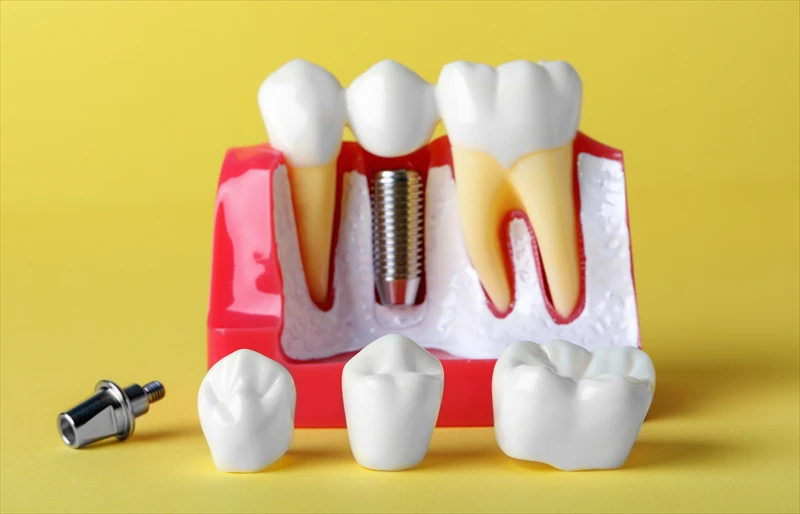Dental Implant Surgery: How Technology Makes It Faster and Safer

Restorative dentistry has advanced significantly with the introduction of dental implants, which now offer a permanent solution for missing teeth. For the residents of Rochester Hills and the surrounding areas, rebuilding and restoring your smile requires simple, straightforward, and quick procedures with minimal downtime, compared to the thorough and uncomfortable surgeries of the past.
Understanding the Paradigm Shift Created through Dental Implants
Acting as artificial roots, dental implants integrate with the jawbone, serving as the foundation for dentition. Unlike dentures and bridges, they provide superior longevity and preservation against jawbone shrinkage while maintaining the facial features.
Benefits include, but aren't limited to:
- Recovery of speaking, eating, and any form of natural function.
- Recovery and preservation of bone structure and health of the jaw.
- Visible and lasting changes are a boost to the quality of life and self-image.
The disguised form through implants offers a calmer self-image, along with the self-saboteur and decreaser of functionality.
Limitations of Traditional Implant Surgery
They are centuries old. Repeated surgeries through a series of appointments not only have the risk of complications but also infliction, misalignment, and extreme tiredness from long and tedious processes. Post-surgical discomfort adds to the list of turn-offs, along with negligible rewards, hindering many from opting.
Precision is essential when it comes to placing implants. Function, aesthetics, and the procedure's success hinge on every detail. This is where modern techniques can provide significant assistance.
How Safety is Improved with New Techniques
The modern approach to implant surgery prioritizes precision and patient safety. Well-organized and planned surgeries minimize the risk of complications and expedite the healing process. The patient experiences the following benefits:
Infection and risk of contamination are minimized due to a clean and controlled surgical environment.
Bleeding and swelling are reduced due to the minimally invasive nature of the procedure.
The procedure is accurately done, safeguarding the surrounding teeth and soft tissues.
These improvements ensure the safety and health of the patient, which is of utmost concern during a surgery of this nature, and provide comfort during the procedure, which tends to be overwhelming.
How New Techniques Improve Speed
Strategic planning has also advanced alongside these techniques, enabling this era to decrease the time spent on treatment significantly. In this modern age, fewer visits are needed due to improved techniques, and surgery can be conducted with speed and efficiency.
Some of the benefits are:
A shorter time spent in the dental chair.
Restoration of standard functions, such as eating and speaking, is achieved more quickly.
The time needed for the implant to integrate with the jawbone is also reduced.
The result of all this is that patients can enjoy the benefits of dental implants much sooner, with significantly less disruption to their daily routines compared to older techniques.
Patient Emphasis And Comfort
Comfort is an essential aspect of modern-day dental implants. With implants, patients can experience less post-operative pain. With the proper, meticulous frameworks and advanced techniques, discomfort and recovery time are significantly improved.
Due to the natural appearance of implants, they are nearly indistinguishable from real teeth.
The speed of recovery enables patients to resume their daily routines with confidence and ease.
Aftercare And Durability
For patients to get the best use out of their dental implants, proper aftercare is vital, including maintaining good hygiene, attending scheduled appointments, and following their dentist's instructions.
Daily brushing and flossing, as well as refraining from damaging dental habits like chewing complex objects, and maintaining regular cleanings and checkups.
Dental implants, paired with precise surgical placements, can be relied upon for an effective and dependable solution for the following decades.
FAQs
1. How long does dental implant surgery take?
The estimated duration of implant surgeries is 1-2 hours per implant, as the duration is contingent upon the level of complexity and the number of teeth being replaced.
2. Are dental implants painful?
The use of modern techniques significantly reduces discomfort. The majority of people who undergo the procedure experience mild soreness, which can be alleviated with common pain relief.
3. What is the recovery period?
During the healing period, initial healing typically occurs within the first two weeks. The jawbone's full integration can take several months to complete.
4. Is there an age restriction concerning eligibility for dental implants?
Healthy adults are usually eligible. However, an examination for underlying bone, oral, and general health is needed.
5. What can affect an implant's lifespan?
With proper attention, the implants can last 15 to 25 years, and with regular checkups and maintenance, potentially a lifetime.
Advancements in modern dental implants have transformed restorative dentistry. The ability to offer quicker procedures, increased safety, and greater patient comfort makes dental implants a dependable, long-term solution for missing teeth. At Rochester Hills Dentist, we prioritize optimal functional oral rehabilitation and maintenance, delivering natural-looking and comfortable results.






